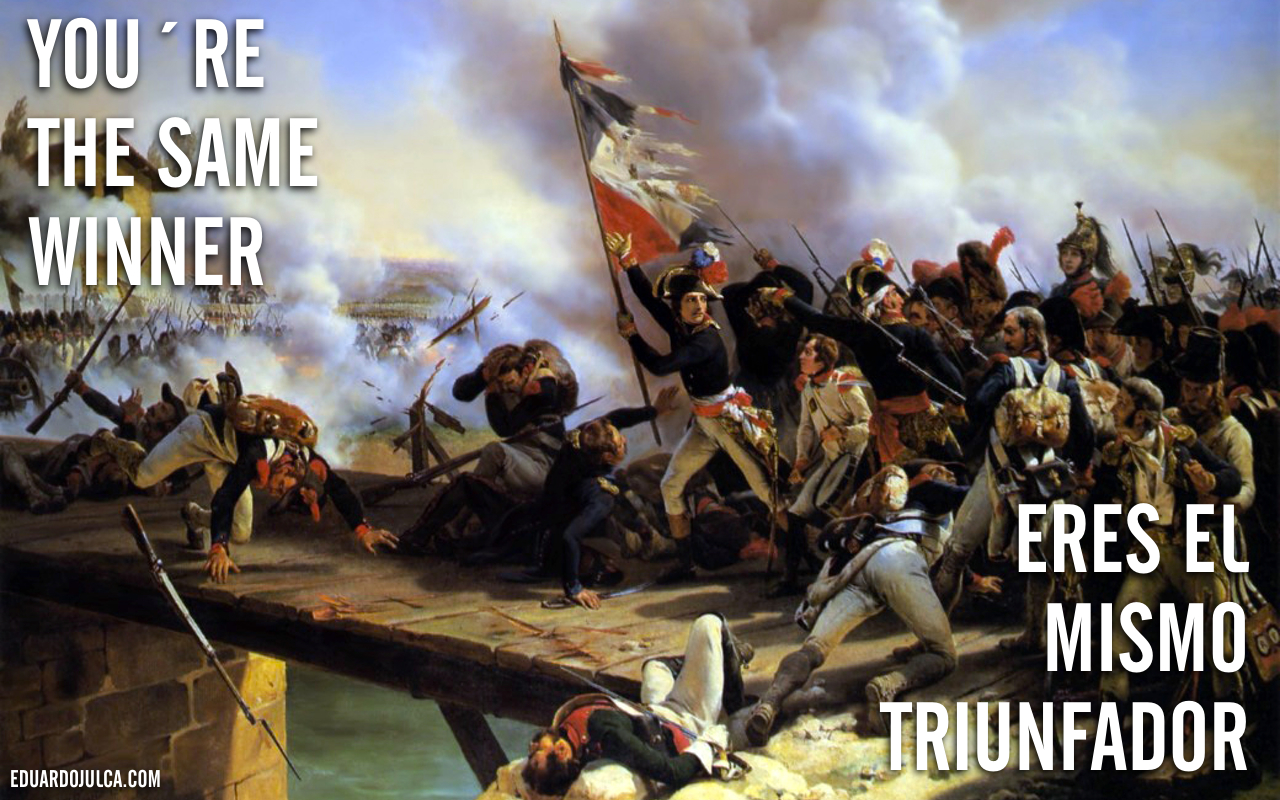LA MARIPOSA SALIENDO DEL CAPULLO
Un joven que pasaba por el parque, notó que en el suelo había una mariposa tratando de salir de su capullo. La recogió y la llevó a su casa, con mucho cuidado, y comenzó a rasgar el capullo para que salga sin inconvenientes, al fin lo logró, la mariposa de hermosos colores aterciopelados, salió y comenzó a volar por la habitación, pero de repente se vino en picada, chocó fuertemente contra el piso, se retorció y murió.
Pasados algunos días, este joven se encontró con un amigo que estudiaba zoología, le contó todo lo sucedido con la mariposa y le preguntó: “¿Si le ayudé a salir del capullo, porqué murió?”. El amigo le respondió: “Al ayudarla cometiste el peor error, ya que las mariposas, al hacer el esfuerzo para salir del capullo, generan y desarrollan toda la fortaleza física que van a necesitar para vivir toda su vida”.
Amigo, tal vez tu estas como esta mariposa queriendo salir de un problema y no puedes, aparentemente todos tus esfuerzos son en vano y no avanzas. ¡No te preocupes! Si alguien viene, te ayuda y te facilita salir de tus problemas no habrás aprendido de las mejores lecciones que uno recibe en esos momentos. Yo he aprendido con valor decirle a los problemas: ¡Bienvenidos! Porque al hacer el esfuerzo por salir de ellos, estarás desarrollando valor y fortaleza para hacer frente a los problemas más grandes que vendrán en el futuro. Esos momentos nos hacen madurar, sacan los quilates que tenemos dentro. Sacan a relucir nuestros verdaderos colores y calibran nuestra perspectiva de la gente y de la vida, con todos sus problemas, enfermedades y sinsabores.
Siempre me acompaña una frase que aprendí hace muchos años: “Tiempos duros hacen hombres fuertes”.
Así que, amigo, sácale provecho a tus presentes circunstancias y adelante en este día, porque ¡es tu mejor día y mañana será mucho mejor!
The butterfly coming out of its cocoon
A Young man passed by a park and saw a butterfly on the ground trying to get out of its cocoon. He picked it up and very carefully took it home. He started to scratch the cocoon so that the butterfly was able to get out without any problems. He was finally able to do so and a beautiful butterfly of many colors came out and started to fly around the room. All of a sudden, however, it took a dive, hit the ground hard, shriveled up and died.
A few days later this young man met with a friend who was studying zoology. He told him everything that had happened with the butterfly and asked him, “If I helped him come out of his cocoon, why did he die?” His friend responded, “When you helped it you made a horrible mistake. Butterflies, when they use all of their strength to struggle out of the cocoon, develop all the physical strength that will be necessary to survive for the rest of their lives.
My friend, maybe you are like this butterfly and you are trying to get out of a difficult problem and you can’t. It seems as though all of your efforts are in vain and that you are not making any progress. Don’t worry! If someone comes and helps you and solves your problems for you, you will not have learned the best life lessons which we receive when overcoming difficulty. I have learned with bravery to say to problems: “Welcome!” because when you fight to overcome them, you will be developing the bravery and strength to be able to face the bigger problems that will come in the future. These moments make us mature. They bring out the diamonds that are inside us. All the problems, sickness, and heartaches make our true colors shine through and give us a clear perspective on people and life.
There is a phrase that I learned many years ago that has always stayed with me.
“Hard times make strong men.”
So, friend, take advantage of your present circumstances and keep moving forward today, because today is your best day and tomorrow will be even better!
























